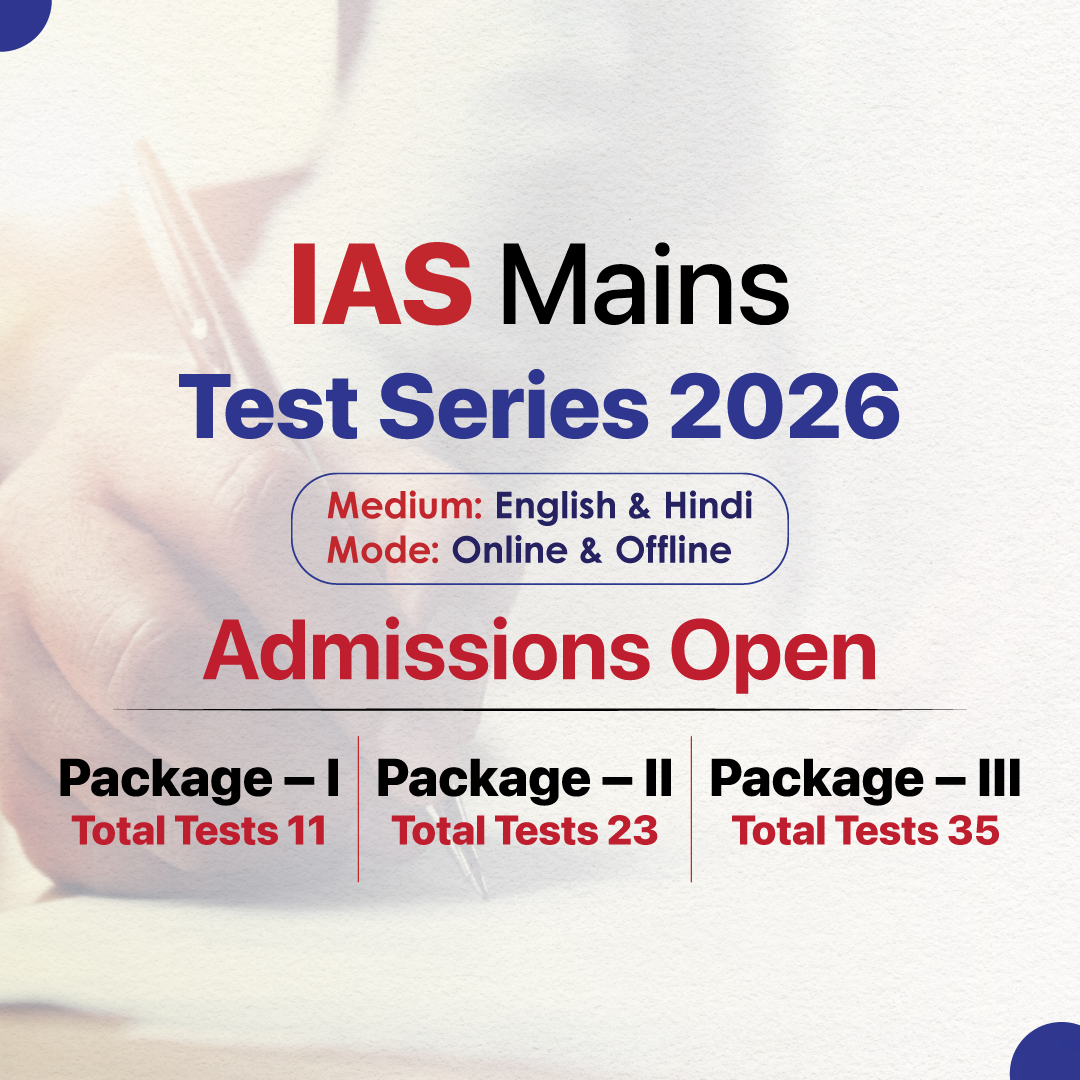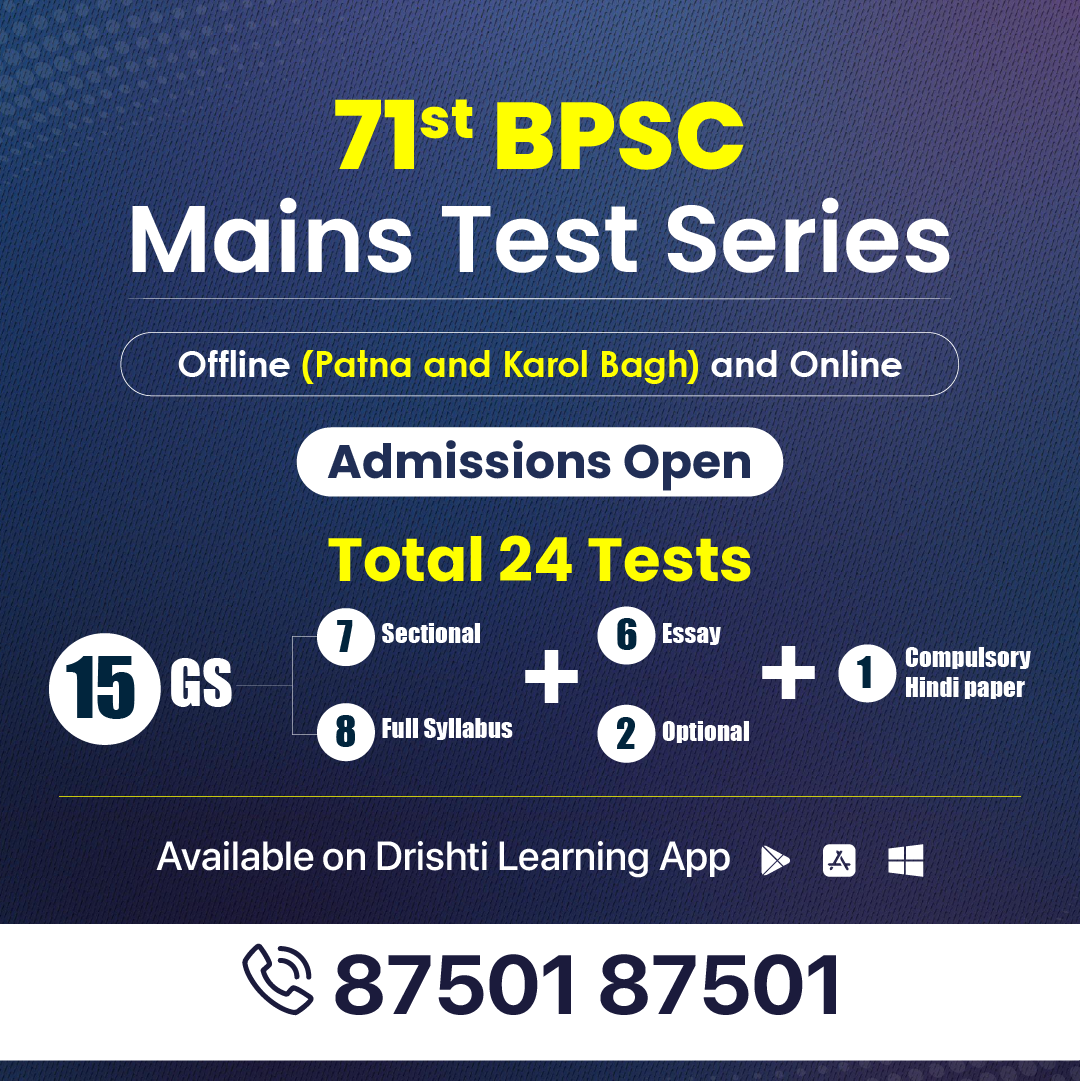Uttar Pradesh Switch to Hindi
Sant Kabir State Awards Honour 39 Weavers in Uttar Pradesh
Why in News?
A Sant Kabir State Awards ceremony was held in Lucknow (Uttar Pradesh) to honour skilled handloom weavers (bunakar) from across the state, recognising their contribution to traditional weaving and craftsmanship.
Key Points:
- Awardees: A total of 39 weavers from 13 different regions (parikṣhetra) of Uttar Pradesh received awards based on performance in handloom and weaving work.
- Winners were categorised into first, second, and third places.
- They received cash awards of ₹20,000, ₹15,000, and ₹10,000 respectively, along with a shield, honorary angavastram (shawl) and a certificate.
- Chief Guest: The event was inaugurated by Rakesh Sachan, Minister of MSME and Khadi Gramodyog.
- Winners:
- Neeraj Devi (Aligarh) — First prize
- Latish Tenguria (Agra) — Second prize
- Saroj (Hathras) — Third prize
- Government Support: The awards are part of Uttar Pradesh government initiatives to support khadi, handloom, and traditional crafts, ensuring sustainability of weaving communities and MSME artisans.
- Significance: The awards aim to promote handloom weaving, encourage skilled artisans, and preserve traditional crafts in Uttar Pradesh.
- Recognition and financial incentives help in motivating craftsmen and enhancing livelihoods.
| Read More: MSMEs |
Uttar Pradesh Switch to Hindi
India-France National Centre of Excellence in Aeronautics to Be Set Up at Kanpur
Why in News?
Prime Minister Shri Narendra Modi announced the establishment of a National Centre of Excellence (NCoE) for Skilling in Aeronautics and Defence at the National Skill Training Institute (NSTI) in Kanpur, Uttar Pradesh.
Key Points:
- National Centre of Excellence (NCoE): This centre will focus on advanced skill training in aeronautics, maintenance, repair and overhaul (MRO), airport operations, defence manufacturing, and allied domains, aiming to build a strong talent pipeline for India’s aerospace and defence sectors.
- Collaboration: The initiative is a collaborative effort between the Government of India and the Government of the French Republic.
- The collaboration envisages co-designed curricula, structured training-of-trainers programmes, periodic joint reviews, exchange initiatives, language training, and the development of structured mobility pathways to global standards.
- Strengthening bilateral cooperation in skills development and vocational training, particularly in emerging high-technology sectors.
- PM-SETU Scheme: The NCoE is being established under the PM-SETU scheme of the Ministry of Skill Development & Entrepreneurship (MSDE).
- With an overall outlay of ₹60,000 crore, the PM-SETU scheme seeks to transform and upgrade 1000 Industrial Training Institutes (ITIs) with industry-aligned curricula and infrastructure.
- Strategic Partnership: A Letter of Intent (LoI) has been exchanged between the MSDE and the Government of France to collaborate on the establishment and functioning of the centre.
- Significance: It strengthens India–France strategic cooperation while building a skilled workforce for India’s growing aerospace and defence sectors.
| Read More: India-France Relation, Centre of Excellence, PM-SETU |
National Current Affairs Switch to Hindi
Cross-Border Digital Payments: India–Malaysia
Why in News?
NPCI International Payments Ltd (NIPL) has signed an agreement with Payments Network Malaysia Sdn Bhd (PayNet) — the national payments network of Malaysia — to enable seamless QR‑based merchant payments between India and Malaysia.
Key Points:
- Partnership: NPCI International and PayNet have entered a strategic agreement to link India’s Unified Payments Interface (UPI) with Malaysia’s DuitNow QR payment system.
- Phased Rollout: The initiative will be rolled out in two phases:
- Phase I: Indian travellers in Malaysia can use their UPI‑enabled apps to scan DuitNow QR codes at merchant locations for seamless payments.
- Phase II: Malaysian visitors to India will be able to scan UPI QR codes to make payments using their DuitNow‑enabled apps once the integration is further expanded.
- Coverage: Indian tourists will gain access to millions of DuitNow QR acceptance points in Malaysia, including restaurants, retail outlets, and tourist attractions.
- Similarly, Malaysian visitors will benefit from acceptance at millions of UPI QR‑enabled merchant locations across India.
- Payment Infrastructure: DuitNow QR is Malaysia’s national QR payment standard operated by PayNet, while UPI is India’s real‑time digital payments interface.
- Linking these systems creates interoperable infrastructure for cross‑border merchant payments without requiring foreign cards or complex currency exchange procedures.
- Strategic Vision: NPCI International’s collaboration with PayNet is part of India’s broader strategy to expand UPI’s international footprint and build interoperable real‑time payment ecosystems globally, under the guidance of the Government of India and the Reserve Bank of India.
| Read More: NPCI, UPI |
National Current Affairs Switch to Hindi
Magnus Carlsen Clinches 2026 FIDE Freestyle World Chess Title
Why in News?
Norwegian chess legend Magnus Carlsen won the 2026 FIDE Freestyle Chess World Championship by defeating American Grandmaster Fabiano Caruana.
Key Points:
- Event: The 2026 FIDE Freestyle Chess World Championship was the first official freestyle world championship.
- Organised by: International Chess Federation (FIDE) and Freestyle Chess Operations.
- Venue: Schloss Weissenhaus, Wangels, Germany.
- This title marks his 21st world championship victory across different formats of chess.
- Winner: Magnus Carlsen won the championship
- Runner-up: Fabiano Caruana (USA).
- Freestyle Chess Format: Also known as Chess960, this format randomises the starting position of pieces (except pawns), reducing the role of memorised openings and emphasising creativity and calculation.
- Format & Participants: Eight top grandmasters qualified via world rankings and tours to compete in the championship.
- Strategic Importance: The official recognition of Freestyle Chess by FIDE signals increasing acceptance of innovative formats in international chess competitions.
| Read More: International Chess Federation (FIDE), Freestyle Chess Operations |
National Current Affairs Switch to Hindi
Russia Blocks WhatsApp, Promotes State-Backed App
Why in News?
The Russian government has blocked access to the Meta-owned messaging app WhatsApp and imposed restrictions on Telegram, Russia’s two most widely used foreign messaging platforms.
Key Points:
- WhatsApp Ban: Russia has fully blocked WhatsApp, citing the platform’s alleged refusal to comply with Russian laws and regulatory requirements.
- The ban was implemented because WhatsApp did not meet local legal and security obligations.
- Regulator: The restrictions are enforced by Roskomnadzor, Russia’s state communications regulator.
- Shift to State App: The Russian government is actively promoting Max, a state-supported messaging and super-app, as a replacement for foreign-owned services.
- Restriction on Telegram: Telegram has not been fully banned.
- Authorities have introduced restrictions on the platform’s functionality and accused it of failing to remove extremist or prohibited content.
- National Security Narrative: Russian authorities argue that restricting foreign messaging apps is necessary for national security.
- These platforms allegedly facilitate criminal activity, fraud, and foreign intelligence access.
- Public Reactions: Digital rights groups criticised the WhatsApp ban and Telegram restrictions, saying they undermine privacy and free communication while promoting state-controlled platforms as part of Russia’s push for digital sovereignty.






















.jpg)







.png)


.jpg)

 PCS Parikshan
PCS Parikshan

